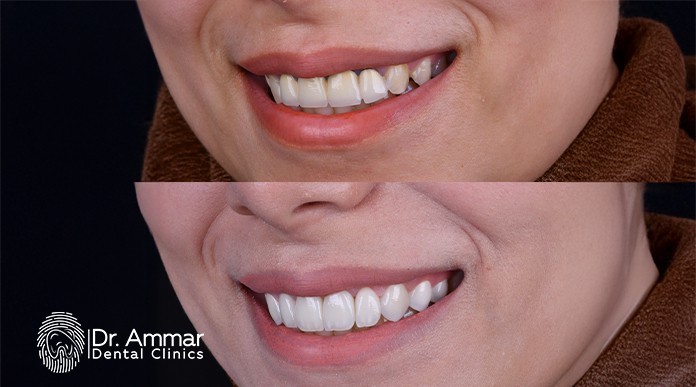Alternatives to Dental Implants
Dental implants are widely recognized as an excellent solution for replacing missing teeth, offering stability, durability, and a natural appearance. However, they are not always the right choice for everyone. Factors such as bone density, overall health, cost, or personal preference can lead individuals to seek alternative tooth replacement options.
Fortunately, modern dentistry offers several effective and reliable alternatives to dental implants. This article will explore these options, drawing information from trusted medical sources to help you understand what might be best for your oral health needs.
Why Consider Alternatives to Dental Implants?
While dental implants boast a high success rate and numerous benefits, there are valid reasons why someone might explore other solutions:
-
Bone Health: Implants require sufficient jawbone density to fuse with. If bone loss has occurred, bone grafting may be necessary, adding to the complexity and cost of the procedure.
-
Cost: Dental implants can be a significant financial investment, and they are often not fully covered by dental insurance.
-
Surgical Procedure: The implant process involves surgical steps, which some individuals may wish to avoid due to health concerns, anxiety, or recovery time.
-
Time Commitment: The entire implant process, from initial surgery to final crown placement, can take several months.
Popular Alternatives to Dental Implants
Here are some of the most common and effective alternatives for replacing missing teeth:
1. Dental Bridges
Dental bridges are a traditional and widely used option for replacing one or more missing teeth. A bridge consists of one or more artificial teeth that are held in place by dental crowns on the natural teeth or implants on either side of the gap.
Types of Bridges:
-
Traditional Bridges: These are the most common type, used when you have natural teeth on both sides of the gap. The adjacent teeth are prepared by removing some enamel to allow crowns to be placed over them, which then support the pontic.
-
Cantilever Bridges: Used when there are adjacent teeth on only one side of the missing tooth. While an option, they are less common due to the increased stress on the supporting tooth.
-
Maryland (Resin-Bonded) Bridges: These bridges use a metal or porcelain framework bonded to the back of the adjacent teeth, requiring minimal preparation of the natural teeth. They are a more conservative option but may not be as strong as traditional bridges.
-
Pros: Can be a quicker solution than implants, is less invasive than surgery, and can restore chewing function and aesthetics effectively.
-
Cons: Requires altering healthy adjacent teeth, does not stimulate the jawbone (which can lead to bone loss over time), and may need replacement after 5-15 years.
2. Partial and Complete Dentures
Dentures are removable appliances that replace missing teeth and surrounding tissues. They are a more affordable and less invasive option compared to implants or bridges.
-
Partial Dentures: Used when some natural teeth remain. They consist of replacement teeth attached to a gum-colored plastic base, often connected by a metal framework that clasps onto your natural teeth.
-
Complete Dentures: Used when all teeth in an arch (upper or lower) are missing. They are custom-made to fit snugly over your gums [5].
-
Pros: Cost-effective, non-invasive, and can be removed for cleaning. They can restore chewing ability and improve appearance.
-
Cons: Can sometimes feel less stable than fixed options, may require adjustments over time, and do not prevent jawbone loss.
3. Implant-Supported Bridges or Dentures
While this option still involves implants, it uses fewer implants to support a bridge or denture, offering a hybrid solution. This can be a good compromise for those who want the stability of implants but have extensive tooth loss or budget limitations for a full set of individual implants.
-
Pros: Provides greater stability and retention than traditional dentures, helps preserve jawbone, and can improve chewing efficiency and comfort.
-
Cons: Still involves a surgical procedure, though less extensive than full mouth implants.
Choosing the Right Option
The best tooth replacement option depends on your individual oral health, overall health, budget, and personal preferences. It is crucial to have a thorough consultation with a qualified dental professional to discuss all available options and determine the most suitable treatment plan for your unique situation.
Discover Your Perfect Smile at Dr. Ammar Dental Clinics
At Dr. Ammar Dental Clinics, we understand that every smile is unique, and so are your dental needs. Whether you're considering advanced dental implants or exploring effective alternatives like dental bridges and dentures, our team of highly skilled specialists is dedicated to providing personalized care with precision and expertise.
We utilize the latest digital dentistry techniques to ensure optimal results and your utmost comfort. Trust Dr. Ammar Clinics to guide you through your options and help you achieve a healthy, confident smile that lasts.
Ready to Restore Your Smile? Contact Dr. Ammar Dental Clinics today for a personalized consultation. Our expert team will assess your needs and help you choose the best solution to achieve the smile you deserve.

